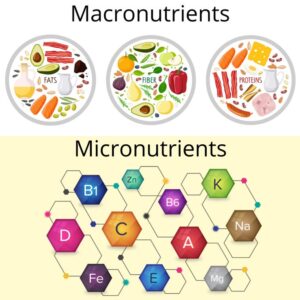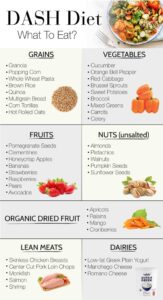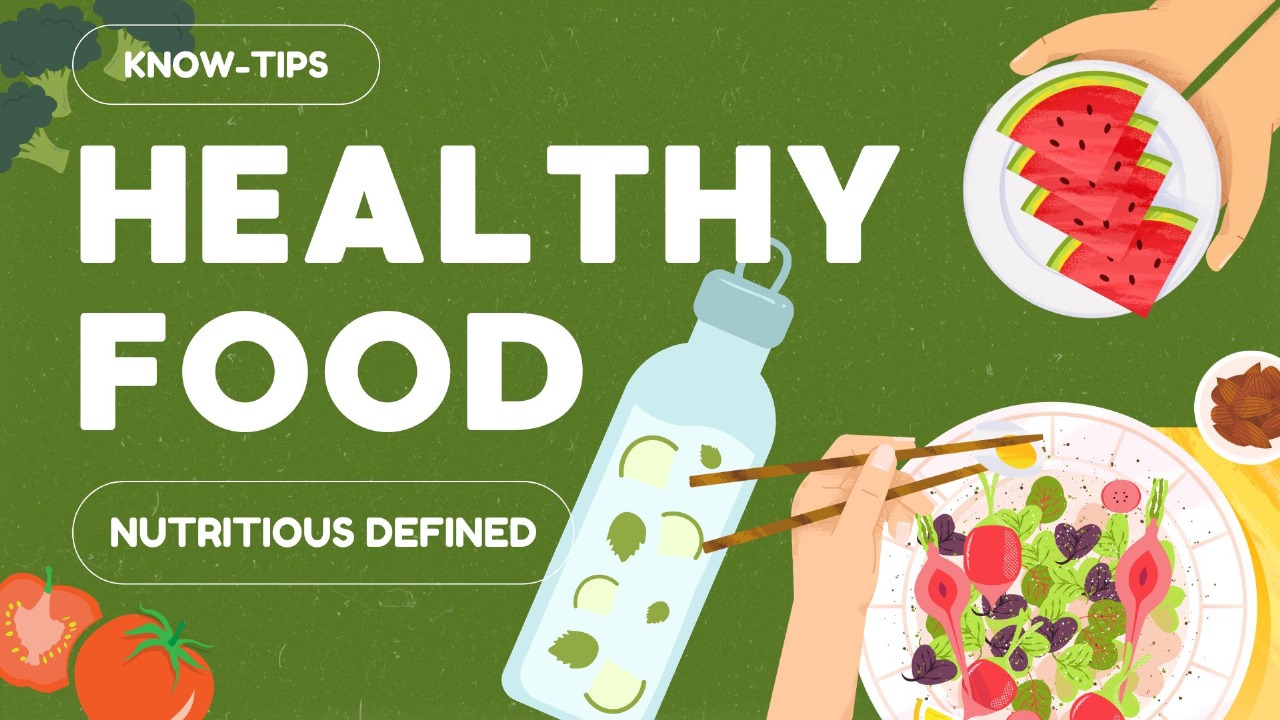Nutrition and Its Role in Maintaining General Health in 2024

⇒ Introduction: Understanding the Importance of Nutrition.
1. Definition of Nutrition:

Nutrition can be defined as a process of organisms and their ingestion or absorption of food for living purposes. Proper nutrition gives the body all the nutrient requirements—the carbohydrates, proteins, fats, vitamins, minerals, and water—required to maintain general health, energy, and normal functions of the body.
2. Why Nutrition?

Good nutrition provides the framework for life and is central to maintaining health in its overall sense. It works to keep the body operational, strengthens the immune system, promotes growth and development, and diminishes the possibilities of chronic diseases such as obesity, diabetes, and cardiovascular disease.
⇒ The Essential Nutrients and Their Roles in Health
1. Macronutrients:

Carbohydrates: This is the primary source of body fuel. Complex carbohydrates are obtained from grains, fruits, and vegetables that give out energy over a longer period.
Protein: A source of repair agents to all tissues, builders of muscles, and providers for general body maintenance, proteins come from meats, fish, eggs, legumes, and nuts.
Fats: These help in brain functions, provide energy, and help the body soak up fat-soluble vitamins. These are obtained from healthy fats which come from olive oil, nuts, etc.
2. Micronutrients:

Vitamins: The body needs these for several functions, including the immunity system (Vitamin C), skin health (Vitamin E), and bone strength (Vitamin D).
Minerals: Necessary for processes such as oxygen transport (Iron), the building of bones (Calcium), and the maintenance of fluid balance (Sodium and Potassium).
3. Water:

Humans need water to survive. It helps regulate the human body’s temperature, facilitate digestion, and distribute nutrients within the body. Hydration is essential for ensuring energy and overall wellness.
⇒ Nutrition and Prevention of Chronic Diseases

- Cardiovascular Protection Diet A diet rich in fruits, vegetables, whole grains, and lean proteins can help prevent heart disease through reduction in risks of high blood pressure, cholesterol, and heart disease. The Mediterranean diet, which is rich in healthy fats and plant foods, has been associated with good health.
- Obesity and Weight Management Proper nutrition is key in the prevention of obesity, a major risk factor for diabetes, heart disease, and certain cancers. Nutrient-dense foods, controlling portion sizes, and achieving a balanced diet all result in regulating body weight.
- Diabetes Managing blood sugar levels through diet is an important role in preventing and managing Type 2 diabetes. Diets should comprise low amounts of processed sugars, and also low on refined carbohydrates, while being high in fiber coming from whole grains, fruits, and vegetables.
- Cancer Prevention Antioxidants in fruits and vegetables protect the body from oxidative stress while reducing cancer risk. Known to decrease cancer risks are berries, leafy greens, and cruciferous vegetables (e.g., broccoli).
1. Nutritional Needs;
- Infants and Children Nutrition is fundamentally necessary during early life stages of development and growth in the brain. For instance, breastfeeding provides key nutrients and antibodies that help to build up a strong immunity.
- Adults A balanced diet enables adults to maintain energy levels, prevent chronic diseases, and have generally good health. Nutritional needs actually have a bit of shift, focusing on fiber, lean proteins, and healthy fats.\
- Seniority Nutritional needs of the elderly include nutrient dense foods that enhance bone development and maintenance, brain functions, and muscle mass. Metabolism and digestive physiology changes may necessitate calcium and vitamin D intake at a higher dosage and greater level of omega-3 fatty acids.
2. Consequences of Malnutrition to Health:
- Nutritional Deficiencies The lack of even the essential nutrients in a body may lead to anemia resulting from iron deficiency, scurvy resulting from Vitamin C deficiency, or osteoporosis due to a lack of calcium and vitamin D.
- Malnutrition Undernutrition or overnutrition leads to suboptimal bodily functions, weak immune response, and delayed growth among children. In fact, this is one of the global health concerns, mainly because most of these regions have poor access to nutritious food.
- Mental Health Research has only slowly begun to indicate that diet plays a crucial role in mental health through signs of depression and anxiety. Diets rich in processed foods, sugar, and unhealthy fats contribute to higher rates of these conditions.
⇒ Nutritional Guidelines for a Healthy Lifestyle:
1. Nutrient-Dense Nutrition:
Balanced nutrition intake should essentially be a combination of foods in various food groups, providing the body with a good source of macronutrients and micronutrients. Besides this, there is portion control and being mindful while eating to not have overconsumption.
2.Healthy Diet

- Resort to the guidelines of Dietary Guidelines for Americans (2020-2025). It suggests a balanced diet rich in whole foods, lean proteins, healthy fats, and low sugars and sodium intake in diet.
- The World Health Organization further emphasizes that less processed and red meats be consumed and more plant-based foods in the prevention of diseases.
3. Special Diets:

The Mediterranean, DASH, and plant-based diets enhance health through the use of whole, natural food stuffs and healthy fats, including nutrient-rich plants.
⇒ Recommendations on Good Nutrition: Introduction to Daily Life
. Meal planning:
Planning ahead and adding whole food such as vegetables, lean proteins, and whole grains helps you stay on the healthy diet but away from processed food.
2. Reading food labels:
It is really easy to make better choices using the food labels if you know where to look at, for example, identifying sugars in the less obvious sources, unhealthy fats and unnecessary additives.
3. Mindful eating:
Eating slowly and enjoying your food while paying heed to hunger cues assists with digestion and prevents overeating.
⇒ Conclusion
A healthy, nutritious lifestyle is shown to promote better health, prevent diseases, and promote a healthier mental function. The science of nutrition continues to advance, and knowledge about food and dietary requirements can help guide people on the road to long-term health and wellness.
⇒ FAQs:
- What are the basic components of a healthy diet?
A balanced diet should have foods with different levels and types of macronutrients and micronutrients and will include fruits, vegetables, lean proteins, and whole grains.
- What do you think would happen to your body if it were subjected to poor nutrition?
Poor nutrition may contribute to chronic diseases like obesity, heart disease, diabetes, and nutrient deficiencies that weaken the immune system.
- Does nutrition have an upside on mental health?
Yes, it does: a diet high in whole foods, low in processed sugars improves mood and cognitive function and reduces symptoms of depression and anxiety.
- What are the richest sources of antioxidants?
very good sources of antioxidants that prevent oxidative stress are berries, dark leafy greens, nuts, and seeds.
- What happens to nutrition as we age?
Generally, the elderly require additional amounts of calcium, vitamin D and proteins to build bone and muscle mass, but they should consume fewer calories because their metabolism has slowed down.
⇒ References:
1. World Health Organization (WHO): Nutritional Guidelines.
2. Harvard T.H. Chan School of Public Health: Healthy Eating Plate.
3. National Institutes of Health (NIH): Nutrition and Health.
Note:
If you have any question then comment on post we will response as soon as possible.
thank you all to visit our site to get new tips and incresce you knowlegde.by get new blog visit our site daily.
share this to your friends ;www.know-tips.com



